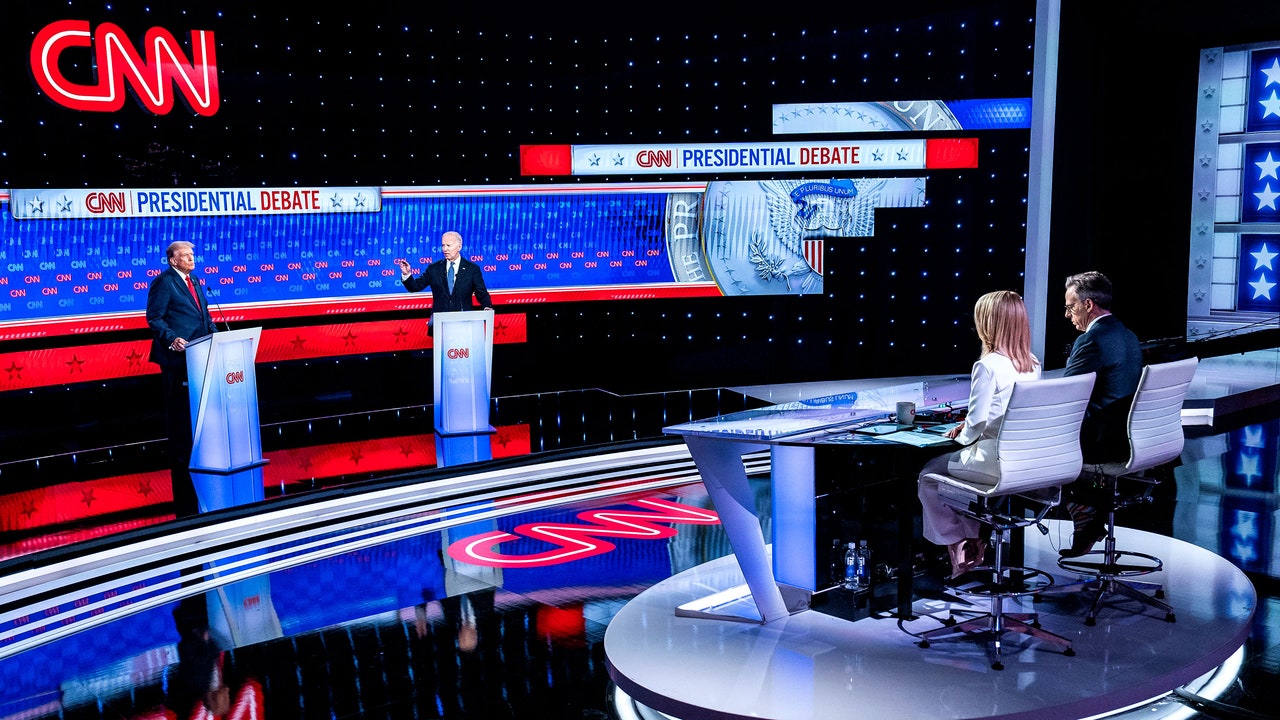
It’s looking likely, given the historically close nature of the 2024 presidential race, that major TV networks won’t be able to make a call on election night—not that that would stop Donald Trump.
“Based on past performance,” CNN anchor Jake Tapper tells me in an interview, the network is anticipating Trump declaring victory “if he’s up on election night, even though all the votes haven’t all been counted.” Still, Tapper and his colleagues remain open to any number of scenarios as results come in, because, he says, “nobody has any idea how this is going to end.”
As the candidates make their final sprint, CNN is “gearing up” for its “Super Bowl,” as Tapper describes it, a culminating political event capping a turbulent election cycle for which the network has, at times, played a crucial role. CNN hosted 13 town halls dating back to the start of the Republican primaries, including a widely panned Trump event, and on Wednesday night will air a Pennsylvania event with Vice President Kamala Harris. Notably, the network produced the June face-off between President Joe Biden and Trump, which Tapper calls the “most consequential presidential debate in history.”
“It has never happened before that a candidate’s performance was so troubling he was pressured by his own party to drop out of the race,” says Tapper, who co-moderated that event with fellow CNN anchor Dana Bash. This election cycle, Bash says, has “really been wild.”
“I feel very lucky as somebody who loves history and obviously loves journalism to be participating in the journalism that made so much history,” says Bash, who also scored Harris’s first joint interview with running mate Governor Tim Walz. As for that pivotal Biden-Trump debate, she says, “who knew this was going to have the monumental effect that it did.”
While the network tried to secure a second debate, this time between Harris and Trump, the former president refused to engage, not meeting the deadline set by CNN for a formal response and saying it was “too late.”
“As both a journalist and as an American, I’m in favor of debates, and the more the better,” Tapper says, adding that Trump’s refusal is a “shame” but “has to do with political strategy.” Trump, he says, “made the calculation that it doesn’t hurt him” and that “in terms of cost-benefit, he’s better off not doing it.”
Meanwhile, Harris is set to appear at 9 p.m. ET Wednesday for a town hall moderated by Anderson Cooper and featuring a live audience of “persuadable and undecided” voters. The opportunity was also extended to Trump, to no avail, as the former president declined the network’s invitation while recently participating in events hosted by Fox News and Univision.
One major change at CNN since the 2020 election has taken place behind the scenes. This marks the first cycle under the leadership of CEO Mark Thompson, who was appointed to the role last year following the ouster of Chris Licht, who had succeeded Jeff Zucker, the network’s boss during the last presidential election night.
Tapper points out that while Thompson at the helm is a relatively new development, key members of the network’s editorial leadership team have remained the same. Tapper name-checked Virginia Moseley, a longtime exec who was named to the new role of executive editor earlier this year, and Eric Sherling, another CNN veteran who now serves as executive vice president of US programming, as among those who have played critical roles in guiding CNN’s political coverage behind the scenes. “I think Mark has faith in us and has us focused on the job at hand,” the anchor says.
“I don’t think that it’s going to be demonstrably different from how we’ve been encouraged to do things in the past,” he adds. “It’s a pretty tight ship and it’s still chugging away, regardless of who the captain is.”




